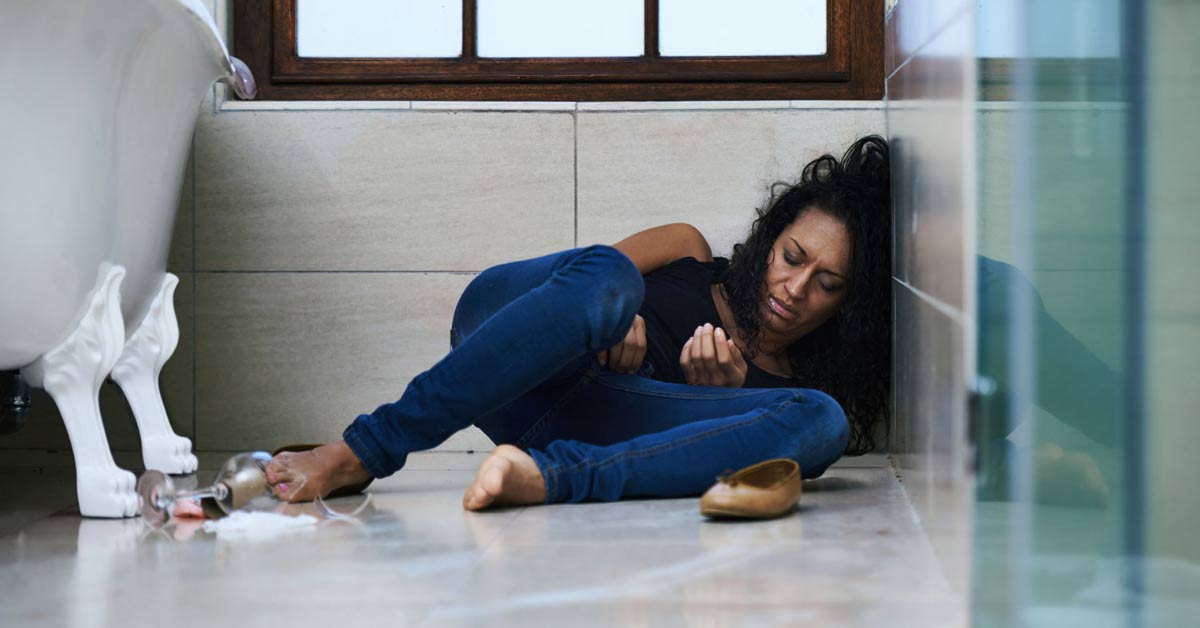Alcohol and opiates are dangerous enough on their own.
When you combine these two, the circumstances can be dire. Mixing alcohol with any medication can have some scary, deadly, and unpredictable effects.

Alcohol is a legal substance that causes intoxication and is widely used and abused by hundreds of thousands of people. Alcohol includes wine, beer, and liquor; each is advertised with various alcoholic content. Drinking excessive amounts of alcohol makes the liver incapable of processing the substance, which makes alcohol stay in the system and cause intoxication.
Opiates are also legal substances if they are prescribed. Generally, opiates like OxyContin and Vicodin are supposed to be used to treat chronic pain. When taken on their own and within the proper dosage, opiates are benign and don’t cause many serious side effects. When these drugs are abused, however, they can make a person feel woozy, confused, nauseous, and extremely relaxed.
Both substances are suppressive and as a duo, can be extremely dangerous and deadly.
Deadly Effects of Alcohol and Opiate Use
More than 2 million Americans struggle with opioid addiction, and 78 people die from opioid overdoses daily. The majority of these deaths involve using alcohol.
Both alcohol and opiates work by slowing down the body’s central nervous system. This means that your brain activity becomes significantly impaired, slowing down all significant functions.
The Brain
Your brain oversees many different processes without you even thinking about them. When you double down on suppressive substances, your brain cannot correctly perform any or all of its jobs at once or on time. The regulation of your vital organs, including digestion, blood circulation, and breathing.
Mild symptoms associated with this combination include:
- Dizziness
- Disorientation
- Constipation
- Slurred speech
- Blurred vision
- Restlessness
- Shortness of breath
- Reduced heart rate
More severe symptoms will merit immediate medical intervention. Severe symptoms can lead to coma, death, and general unresponsiveness. To prevent these deadly consequences, seek emergency medical care if you or someone you see experiences:
- a breathing rate of fewer than 10 breaths per minute
- slow reflexes
- blue lips or fingertips
- clammy or cold skin
- extreme confusion and memory loss
- nausea and vomiting
When breathing is affected by the combination of alcohol and opiates, it can cause a person to go into respiratory distress. This means that a person will essentially stop breathing, either periodically or for an extended time.
Narcan
Emergency medical practitioners may begin releasing naloxone (Narcan) into the victim’s system. This drug is safe and effective for emergency medical professionals to use to prevent death from an overdose.
It blocks the effects of opiates on the brain, which can help restore breathing in 2-3 minutes after it’s administered. A second dose is given to those who don’t awaken after 3 minutes, along with rescue breathing tactics.
Narcan can wear off after a while, so it’s necessary to call 911.
The Liver and Alcohol Abuse
Alcohol already imposes severe consequences on the body’s liver, kidneys, and brain and only accelerates the damage caused by opiates. Some opiates contain acetaminophen, which is a drug that also harms the liver as well. The result of mixing these two is extensive damage to the liver, resulting in cirrhosis and liver cancer.
Long-Term Effects of Alcohol and Opiate Use in New Hampshire
If you live to see prolonged substance use disorders of this nature, you will experience long-term effects that will be difficult, if possible, to overcome. You will have thought, memory, and concentration issues, chronic slurred speech, muscle weakness, and disorientation. Organ damage is likely to have occurred over time, enhancing your risk for cancers and other severe health conditions.
A dependency on using these substances can be caused by the need to have more to get the same effects. Addiction is extremely common in users of each of these substances, and the combination of the two facilitates a more profound need for short-term results.
Are You Suffering from Opiate and Alcohol Abuse in New Hampshire?
 The first step to getting help and preventing death is understanding your problem and seeking help immediately. The best time to take control of your life and free yourself from addiction is now.
The first step to getting help and preventing death is understanding your problem and seeking help immediately. The best time to take control of your life and free yourself from addiction is now.
Suppose you or a loved one has a noticeable dependency on either of these substances, causing relationships to fade and causing terrible decision-making and financial choices. In that case, it’s time to look to the Sobriety Centers of New Hampshire.
Here, you are provided personalized addiction treatment options created just for you and your journey to recovery. You will appreciate new healthy relationships born from sobriety and support and professional and confidential staff ready to help you detox from alcohol and detox from opiates.
Save your life, and get over this dependency once and for all by contacting us today.
